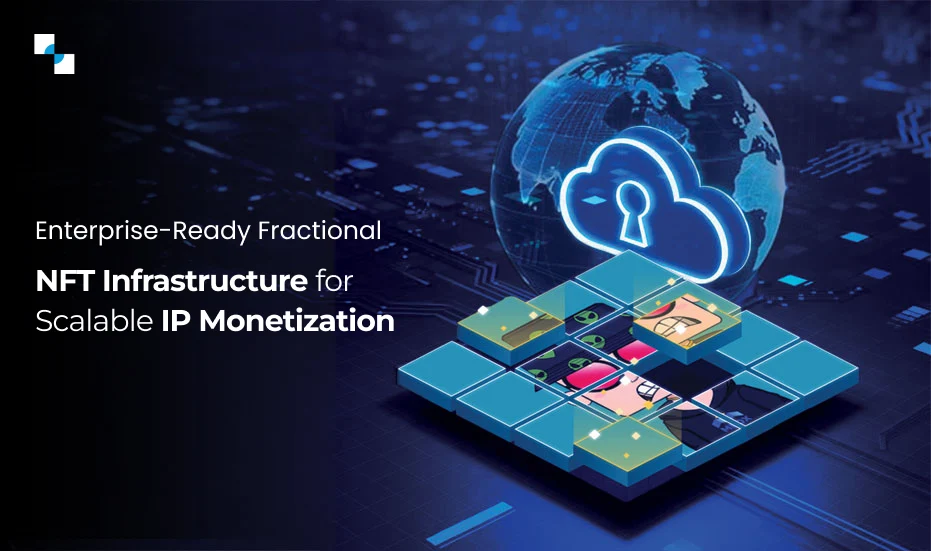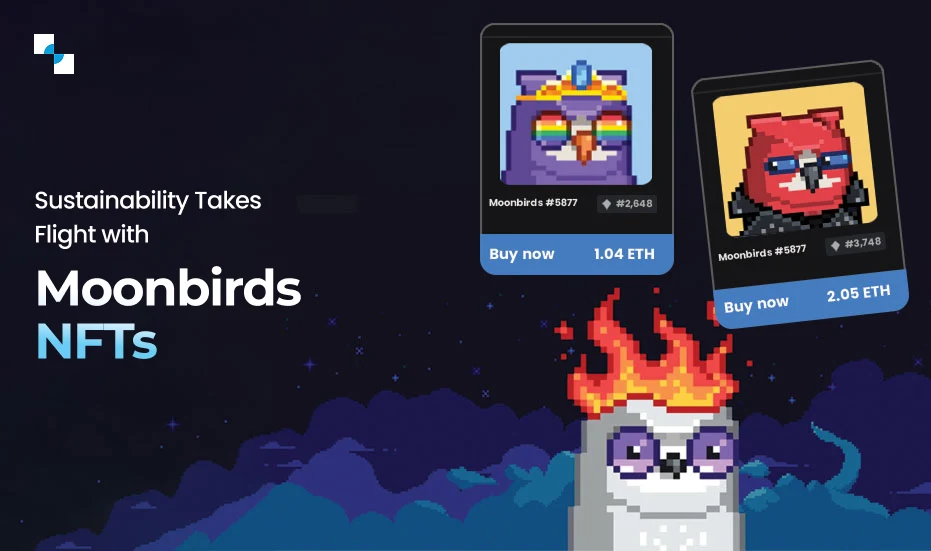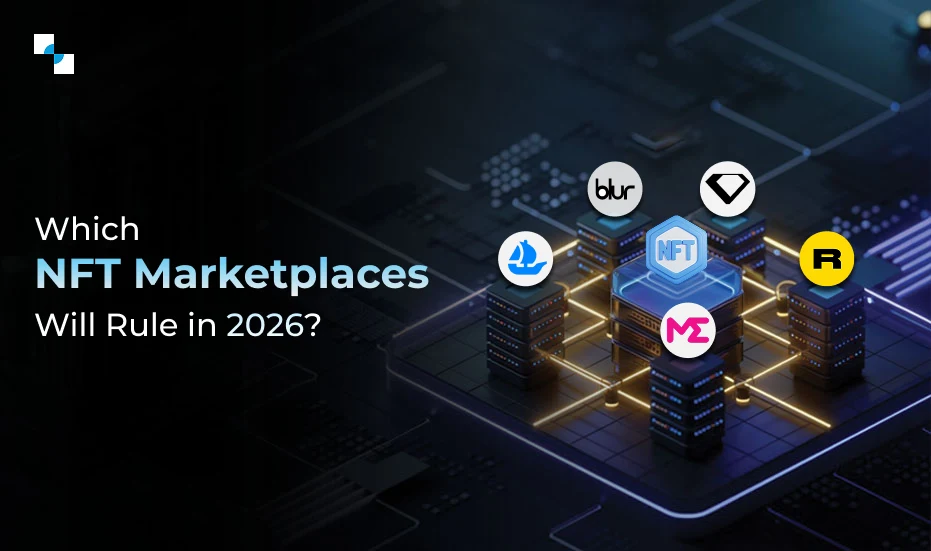Blockchain has transformed the gaming industry by providing a secure and transparent platform for play-to-earn experiences. A significant advantage of this innovation is its ownership and control. Blockchain game development ensures a tamper-proof record of in-game assets, such as unique weapons, virtual land, or powerful characters. Players genuinely own these assets and can freely trade or sell them on decentralized marketplaces, cultivating a vibrant in-game economy. This mechanism empowers players and gives their time and effort in the game tangible value.
Additionally, blockchain enhances security and trust. Traditional in-game items are often susceptible to duplication or manipulation. The decentralized nature of blockchain game development services eliminates this vulnerability. Each transaction is recorded on a public ledger, guaranteeing authenticity and preventing fraud. This not only safeguards players’ investments but also fosters a fairer and more secure environment for all participants.
What is Pixels Game?
Pixels is a captivating open-world game built on blockchain, offering a unique blend of exploration, creation, and resource management. This innovative title integrates NFTs (non-fungible tokens) into core gameplay mechanics, allowing players to own and manage valuable digital assets within the Pixels Universe. By leveraging the power of NFT game development, Pixels empowers players to not only enjoy a rich and engaging gaming experience but also potentially earn rewards through their in-game activities and ownership of these unique NFTs.
![]()
Taking into account the growing popularity of NFT gaming development ownership and play-to-earn mechanics to earn money, Pixels has positioned itself as a leading blockchain game. This immersive open-world adventure integrates NFT into its gameplay, allowing players to farm, explore the landscape, and interact with villagers, all while managing digital assets.
Why Build a Game Like Pixels?
The gaming industry is undergoing a transformation, with blockchain enabling innovative play-to-earn experiences. Pixels, a popular NFT farming and exploration game, has captivated both players and developers. What drives the success of a game like Pixels game NFT, and why should you consider developing one yourself? Here are five compelling reasons to delve into the exciting world of NFT-based games:
- Thriving Play-to-Earn Model: Pixels taps into the growing popularity of play-to-earn mechanics. Players can not only enjoy engaging gameplay but also potentially generate real-world value by collecting, cultivating, and trading NFTs within the game’s ecosystem. This fosters a dedicated player base motivated by both entertainment and potential financial rewards.
- NFT Ownership & Community: NFT game development empowers players with true ownership of in-game assets. Unlike traditional games, players in NFT-based games like Pixels genuinely own virtual land, items, or characters. This fosters a sense of investment and incentivizes players to actively participate in the game’s economy. Additionally, the shared ownership experience can build a strong player community with shared goals and interests.
- Unique & Scarce Digital Assets: NFTs offer the potential to create unique and scarce digital assets within your game. These limited-edition items can be highly sought-after by players, driving in-game economies and potentially generating significant value for both players and developers.
How to Earn Money in Pixels Game?
Pixels offers multiple ways to earn: cultivate crops and craft valuable items to sell on the marketplace, trade coveted NFT gaming development assets like land or characters for profit, and conquer in-game quests and events that reward players with valuable items or even NFTs themselves. This blend of farming, trading, and challenge-based earning caters to diverse player styles and allows them to convert their playtime into real-world income.
![]()
- Farm & Craft: Cultivate crops, raise animals, craft valuable items, and sell them on the marketplace.
- Trade NFTs: Buy, sell, and trade land plots, unique characters, special equipment, and even pets for profit.
- Conquer Quests: Earn rewards and NFTs by completing in-game challenges and events.
- Breed & Raise: Breed rare animals or characters to create valuable NFTs for the marketplace.
- Participate in the Community: Help others, complete social tasks, and potentially earn rewards.
Steps to Develop and Launch a Game like Pixels
The captivating world of NFT-based games like Pixels game NFT has ignited a revolution in play-to-earn experiences. If you’re inspired to create your own immersive world that blends exploration, resource management, and the power of NFT game development, here’s a comprehensive roadmap to guide you through the development and launch process:
1. Concept & Design
- Define Core Gameplay: Outline the core gameplay loop, focusing on elements like exploration, resource management, NFT integration, and potential play-to-earn mechanics.
- Worldbuilding & Aesthetics: Craft a compelling narrative and develop a distinctive art style that aligns with your target audience and the chosen blockchain platform.
- NFT Design & Utility: Define the types of NFTs within your game (land, characters, items) and establish their in-game utility to ensure a healthy and engaging economy.
2. Technical Development
- Blockchain Integration: Choose a suitable blockchain platform (e.g., Ethereum, Solana) that can handle the anticipated transaction volume and user base.
- Smart Contract Development: Develop secure and efficient smart contracts to govern NFT ownership, resource management, and in-game transactions within the chosen blockchain.
- Game Engine Selection: Select a game engine (e.g., Unity, Unreal Engine) that supports integration with blockchain game development and offers the necessary functionalities for your game’s design.
- Front-End & User Interface: Develop an intuitive user interface that seamlessly integrates with blockchain elements and provides a smooth player experience for interacting with NFTs and the game world.
3. Testing & Refinement
- Rigorous Testing: Implement thorough testing procedures to ensure the security and functionality of smart contracts, identify potential exploits, and refine gameplay balance.
- Beta Testing: Conduct closed and open beta testing phases to gather player feedback, identify bugs, and assess the overall user experience before launch.
4. Launch & Marketing
- Marketplace Integration: Integrate your game with established NFT marketplaces to facilitate easy NFT trading and player participation in the broader blockchain ecosystem.
- Community Building: Foster a vibrant community around your game through social media engagement, in-game events, and clear communication channels.
- Marketing & Promotion: Develop a comprehensive marketing strategy to reach your target audience, highlight the unique features of your game, and attract players interested in the play-to-earn model.
5. Ongoing Support & Development
- Live Operations & Updates: Regularly address bugs, implement new content, and maintain a healthy in-game economy through ongoing maintenance and updates.
- Community Engagement: Continuously engage with your player base, gather feedback, and adapt the game based on player interests to maintain a thriving community.
![]()
Cost to Pixels NFT Game Development
The cost of developing a game like Pixels can vary greatly, depending on several key factors. Complexity reigns supreme, with intricate game worlds, numerous mechanics, and deep NFT gaming development integration demanding more development resources and pushing the price tag upwards. Team structure plays a role as well – building an in-house team incurs salary and benefit costs, while outsourcing to experienced studios offers variable rates depending on location and expertise. Technology choices like the blockchain platform and game engine also influence costs due to licensing fees and integration complexities. Finally, don’t forget the art style! A visually stunning world requires more artistic investment, impacting the overall budget.
Final Thoughts
The future of NFT-based games like Pixels is brimming with potential. Expect deeper integrations between blockchain technology and gameplay, allowing for more innovative play-to-earn mechanics and truly player-owned in-game economies. As the technology matures, scalability and security will become paramount, fostering trust and attracting a wider range of players. Additionally, the lines between gaming and the real world will likely blur further, with NFTs potentially unlocking exclusive experiences or even real-world benefits.
Developing a successful NFT game in this evolving landscape requires a partner with expertise in both cutting-edge blockchain technology and captivating game design. Antier stands out as the ideal choice, possessing a proven track record of crafting immersive gaming experiences while staying at the forefront of blockchain innovation. Contact Antier, the award-winning NFT game development company, and let us help you build the next generation of gaming.






